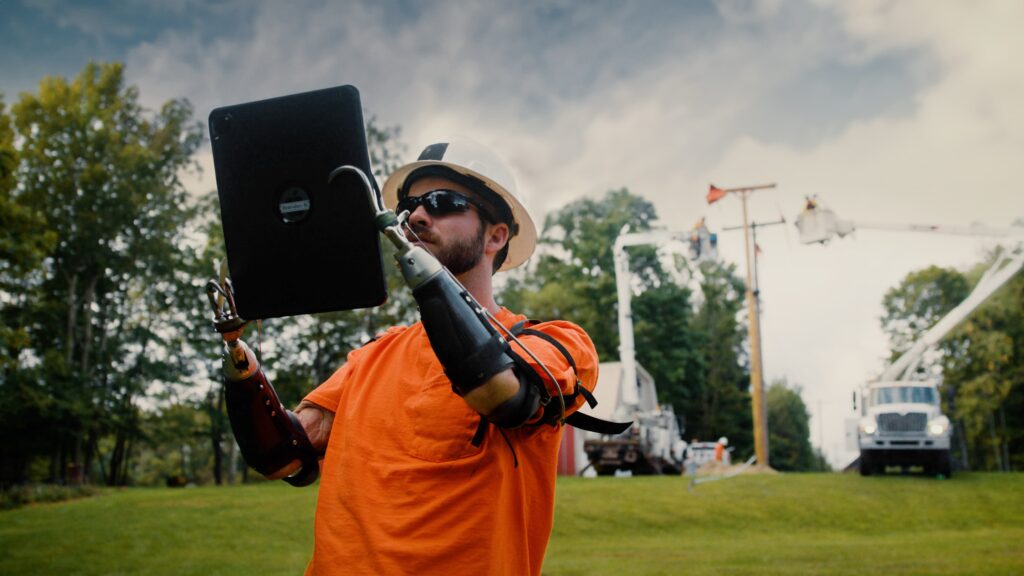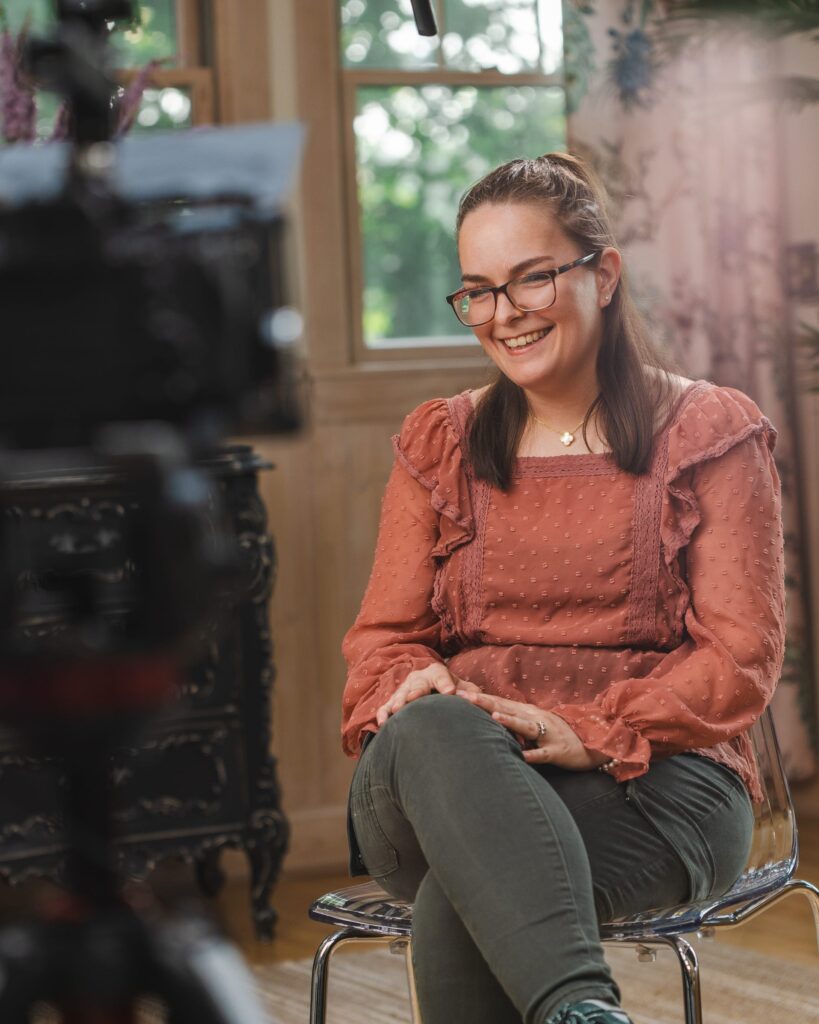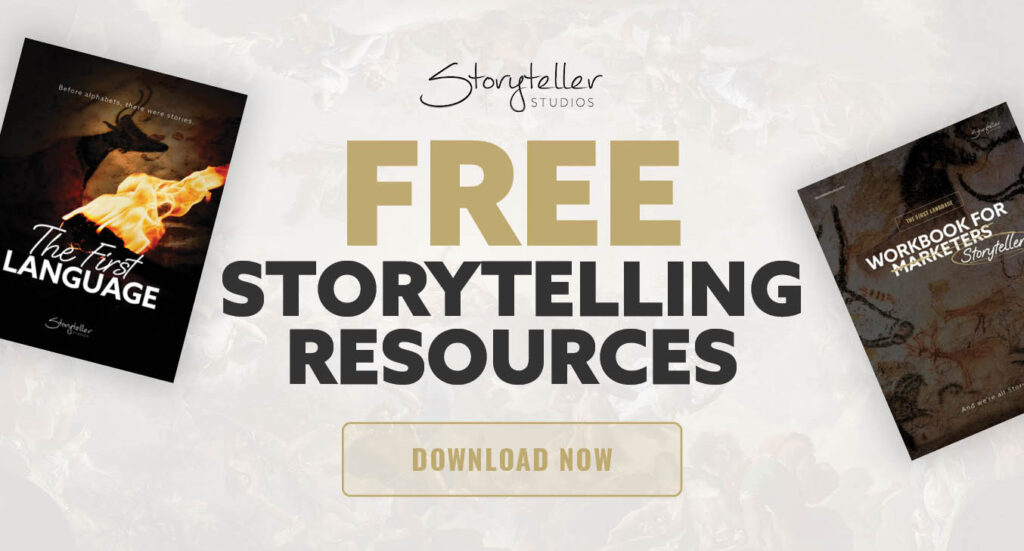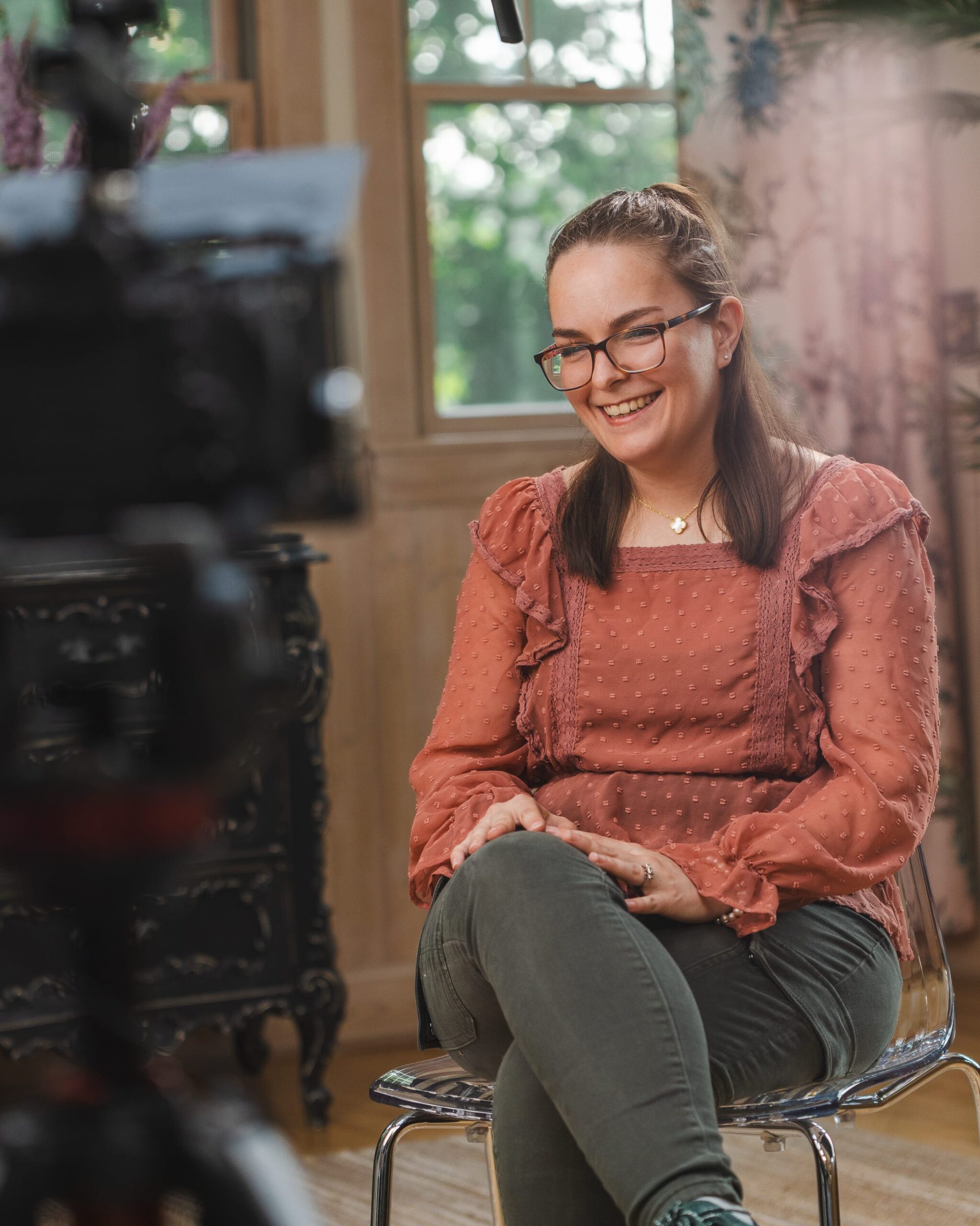Storytelling In Marketing
When people talk about “storytelling” as a tool in marketing, they’re pointing to something deeper than catchy slogans or clever taglines. Storytelling in marketing is the art of using narrative to convey a message, build emotional bridges, and make your brand unforgettable. It’s what separates companies people tolerate from companies people champion.
Effective storytelling means understanding your audience so well that your message feels like it was made just for them. It resonates with their needs, desires, and values. Stories that do this don’t just inform. They move people to act, share, and ultimately become advocates for your brand.
And though storytelling in marketing sounds modern, it’s nothing new. The principles that make stories work haven’t changed in thousands of years. We’ve just found new ways to apply them.
Why Storytelling Works: The Science Behind the Strategy
Humans are hardwired for stories. This isn’t marketing speak. It’s neuroscience. When we hear facts and figures, the language-processing parts of our brain light up. But when we hear a story, something different happens. The sensory cortex activates. The motor cortex engages. Our brains simulate the experience as if we’re living it ourselves.

Research from Princeton found that when someone tells a story, the listener’s brain activity begins to mirror the storyteller’s. It’s called neural coupling, and it’s the biological basis for empathy. Stories literally sync our minds.
This matters for marketing because people don’t make decisions rationally. They make decisions emotionally and justify them logically. A well-told story bypasses skepticism and speaks directly to the part of the brain that says “yes” or “no” before the analytical mind can intervene.
The Memory Advantage
Stanford professor Chip Heath found that stories are up to 22 times more memorable than facts alone. Think about that. If you want your message to stick, wrapping it in a story isn’t optional. It’s essential.
This is why nonprofit organizations that share individual stories consistently outperform those that lead with statistics. “We served 10,000 meals last year” is impressive. “Meet Jessica, who didn’t know where her next meal was coming from until she found us” is transformative.
The Framework That’s Worked for 2,400 Years

Storytelling as a way of connecting and building shared values dates back to humanity’s earliest days. But the ancient philosopher Aristotle may have been the first to study its mechanics. His work, Poetics, laid out a framework that remains as relevant today as it was in 335 BCE.
Here’s what Aristotle taught us about effective storytelling.
Plot: The Sequence That Creates Meaning
Aristotle believed a story’s plot was central to its power. A well-told story has a beginning, middle, and end, with events logically connected and leading to a satisfying conclusion. Random events don’t make a story. Cause and effect do.
Your marketing message needs the same structure. There’s a before (the problem), a during (the solution), and an after (the transformation). Skip any of these, and the story falls flat.
Character: The Heart of Every Story
Aristotle argued that a story’s characters should be believable, with clear motivations and consistent actions. Great characters reflect our own experiences and qualities, making the audience feel seen and understood.
Here’s the critical insight for marketing: your customer is the hero of the story. Not your brand. Your brand is the guide who helps the hero overcome their challenge and achieve their goal. Get this wrong, and your message becomes noise.
Catharsis: The Emotional Release
Aristotle believed storytelling should stir an emotional response. A story that shows struggles and triumphs creates catharsis, that sense of emotional release that leaves a lasting impact on the viewer.
Marketing that makes people feel something gets remembered. Marketing that doesn’t gets scrolled past. The goal isn’t manipulation. It’s connection. Real stories about real people create real emotion.
Language: Clarity Over Cleverness
Aristotle noted the importance of using clear, concise, and story-appropriate language. Jargon, buzzwords, and corporate speak kill stories. Plain language brings them to life.
The best marketing copy sounds like a conversation, not a press release. It uses contractions. It varies sentence length. It reads like it was written by a human for other humans, because it was.
Imitation: The Mirror of Reality
Aristotle saw storytelling as a form of imitation, where the goal is to mirror reality in a way that feels authentic and emotionally engaging. He wasn’t talking about lying. He was talking about truth-telling through narrative.
Authenticity is everything in modern marketing. Audiences can smell inauthenticity from a mile away. Documentary-style content that shows real people in real situations outperforms polished, scripted content almost every time.
Applying Storytelling to Your Marketing
So how do these timeless elements fit into a modern marketing message? Here’s how traditional storytelling structure maps to brand communication.
Exposition: Set the Stage
Introduce your audience to the world of the story. This isn’t about your company history or your mission statement. It’s about establishing the context your customer lives in. What’s the status quo? What challenge do they face? What’s at stake?
Good exposition creates recognition. Your audience should think, “Yes, that’s exactly my situation.”
Rising Action: Build the Tension

Address the challenges or obstacles your audience faces. This is where you demonstrate that you understand their pain. The “character” here is your customer, who has needs or desires but faces certain challenges. You’re positioning your brand as the answer, but not yet.
Resist the urge to jump straight to the solution. Stories need tension. Marketing that skips the struggle feels hollow.
Climax: Present the Solution
This is the moment of triumph. Your brand fulfills your audience’s needs or desires. You showcase how you solve their problem. But remember: the hero is still your customer. You’re the mentor handing them the sword, not the knight slaying the dragon.
Falling Action: Address the Doubts
Offer reassurances and address potential objections. This is where testimonials, case studies, guarantees, or additional information give the audience confidence to choose your brand. Social proof is powerful here.
One of our clients put it this way: “The experience working with Storyteller Studios was collaborative, responsive, respectful, and highly productive.” That’s not a sales pitch. That’s a real person addressing a real concern.
Look at those four words. Each one speaks to a fear that keeps brands from investing in video storytelling.
Collaborative addresses the fear of losing control. You’ve spent years building your brand. You know your audience better than anyone. The last thing you want is a creative team that steamrolls your vision and delivers something that doesn’t feel like you. Collaboration means your voice matters at every stage.
Responsive addresses the fear of being left in the dark. Maybe you’ve worked with vendors who disappear after the deposit clears. Maybe you’ve sent emails that went unanswered for days. Responsiveness means you always know where things stand and you’re never left chasing someone down for an update.
Respectful addresses the fear of your story being mishandled. Video production often involves interviews with real people—employees, customers, beneficiaries. These are sensitive moments. Respectful means the team treats every person and every story with the care it deserves.
Highly productive addresses the fear of wasted time. You’re busy. Your team is busy. A video project that drags on for months or disrupts your operations isn’t worth it, no matter how good the final product is. Productive means the process is efficient, organized, and designed to minimize the burden on you.
Resolution: The Call to Action

Close with a clear invitation to take the next step. Whether it’s learning more, making a purchase, or signing up for a consultation, the call to action should feel like the natural conclusion to the story you’ve told.
Vague endings kill momentum. “Contact us” is weak. “Start your project” is specific. “Let’s tell your story” is an invitation.
Common Storytelling Mistakes in Marketing
Understanding the framework is one thing. Executing it is another. Here are the mistakes we see most often.
Making Your Brand the Hero
This is the most common mistake, and it’s fatal. When your marketing is all about how great your company is, your awards, your history, your capabilities, you’ve made yourself the protagonist. Your audience tunes out because the story isn’t about them.
The fix: position your customer as the hero. You’re the guide. You have the expertise and tools to help them succeed. But the success is theirs.
Starting with Your Solution Instead of Their Problem
Too many brands lead with features. “We offer X, Y, and Z.” That’s not a story. That’s a product spec sheet. Stories start with problems. With tension. With something at stake.
Before you talk about what you do, establish why it matters. What pain exists without you? What opportunity goes unrealized?
Prioritizing Polish Over Authenticity

There’s a place for scripted messages. But scripted always reads as inauthentic. Audiences today are sophisticated. They can tell when something feels staged.
Documentary-style storytelling, where real people share real experiences in their own words, consistently outperforms traditional advertising. It builds trust because it’s true.
Telling a Great Story with No Clear Next Step
Some brands tell beautiful stories that go nowhere. They inspire emotion but provide no channel for that emotion to flow into action. Every story needs a resolution. Every marketing story needs a call to action.
Why Video Is the Ultimate Storytelling Medium
Storytelling works in any medium. But video brings together every tool in the storyteller’s kit: visuals, sound, music, pacing, and human faces expressing real emotion. It’s the closest thing to being there.
Video also meets audiences where they are. By some estimates, video will account for over 80% of all consumer internet traffic. If you’re not telling your story through video, you’re missing the primary way people consume content.
The Documentary Approach
Documentary-style video flips the traditional corporate video on its head. Instead of scripted talking heads reading teleprompters, you capture real people sharing genuine experiences. The imperfections become features, not bugs. A pause to collect thoughts, a crack in someone’s voice, an unexpected laugh: these moments build connection.
One development director told us: “Our Storyteller video is the most effective tool we have in communicating the heart of what happens here. It does so in a clear, concise, and stunningly beautiful way.” That’s the power of documentary-style storytelling.
Measuring Storytelling Success
Storytelling in marketing isn’t just about feeling good. It should drive results. Here’s how to know if your stories are working.
Engagement Metrics
Watch time, completion rates, and social shares tell you whether your story is holding attention. If people are dropping off in the first 10 seconds, your opening isn’t doing its job. If they’re watching to the end and sharing, you’ve created something worth talking about.
Conversion Metrics
Ultimately, storytelling should move people toward action. Track inquiries, donations, sign-ups, or purchases that originate from story-driven content. One client reported that after using their brand video, sponsorship revenue almost doubled. That’s ROI you can measure.
Brand Perception
Harder to measure but equally important: how do people feel about your brand after engaging with your story? Surveys, sentiment analysis, and qualitative feedback help here. When people describe your brand as “authentic,” “trustworthy,” or “human,” storytelling is doing its work.
Getting Started with Storytelling in Marketing
You don’t need a massive budget or a Hollywood crew to start telling better stories. You need clarity on three things.
Who is your audience? Know them deeply. Understand their challenges, desires, and fears. Your story won’t land if it’s not aimed at the right people.
What transformation do you offer? Every good story is about change. What’s the before and after for your customer? That transformation is the heart of your narrative.
What’s the emotional core? How do you want your audience to feel? Hope? Relief? Inspiration? Confidence? Identify the emotion and build your story around it.
From there, the ancient principles take over. Structure your message with a beginning, middle, and end. Make your customer the hero. Use clear, authentic language. And always, always include a call to action.
The Bottom Line
Storytelling in marketing works because it taps into something as old as humanity itself. People are wired to respond to stories. Aristotle understood this 2,400 years ago. Modern neuroscience confirms it.
By telling a story that reflects your customers’ values, challenges, and aspirations, your brand becomes more than a product or service. It becomes a part of their lives. That’s the magic storytelling brings to marketing.
It’s nothing new. And that’s exactly why it works.
Ready to tell your story? We’d love to help. Start a project →
READ LATEST
the
we're storyteller studios
documentary-style film for brands & causes
In 2013, we started leveraging the power of documentary-style film for brands and causes in our hometown of Springfield, Illinois (hence our affinity for Lincoln).
Since then, we’ve worked with clients nationally and traveled to cities including Chicago, St. Louis, Kansas City, Indianapolis, Louisville, and Des Moines.
No matter where you are, we’d be honored to serve your brand next.
featured post
3 Must-Have Ingredients for Marketing Videos That Work
Every effective marketing video relies on three essential ingredients that make it resonate with audiences and drive results—discover what they are and how they can make your next video project a success.





